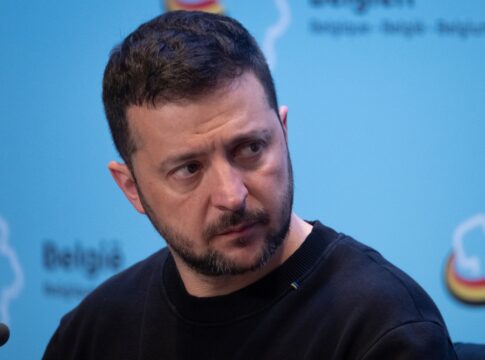With up to 30,000 more troops being sent by North Korea to support Russian forces in Ukraine, the conflict has escalated dangerously into a global proxy war. North Korea suffered an estimated 1,000 fatalities and 4,000 total casualties by January 2025 as a result of the initial clashes between Ukrainian and North Korean troops in November 2024. Since 2022, North Korea has supplied Russia with missile systems, self-propelled howitzers, and artillery ammunition.
A Growing Military Alliance
North Korea’s military support for Russia in Ukraine has steadily increased since 2022, beginning with diplomatic recognition of Russian-backed separatist regions and the annexation of Crimea. The relationship evolved into material support when North Korea began supplying artillery ammunition to Russian forces. By November 2024, this support expanded to include military equipment such as self-propelled howitzers and missile systems.
The integration of North Korean forces into the Russian military structure represents an unprecedented level of foreign military cooperation for the isolated regime. North Korean soldiers have received training in eastern Russia and operate under Russian command. This arrangement has already been tested in combat, with the first documented engagements between Ukrainian and North Korean troops occurring in the Kursk region in late 2024. By January 2025, Ukraine had captured its first North Korean prisoners of war, confirming the direct involvement of these forces in frontline combat operations.
NEW: South Korean intelligence suggests that North Korea may deploy North Korean troops to Ukrainian territory, which would represent a significant battlefield inflection.
US President Donald Trump and Ukrainian President Volodymyr Zelensky met at the NATO summit on June 25 and… pic.twitter.com/S3VbjuBZEn
— Institute for the Study of War (@TheStudyofWar) June 26, 2025
Human Cost and Official Recognition
The human toll of North Korea’s involvement has been substantial. By mid-January 2025, North Korean forces reportedly suffered approximately 1,000 killed and 4,000 total casualties. Despite these losses, both Moscow and Pyongyang maintained a policy of denial until April 2025, when they finally acknowledged North Korean participation in the conflict. The formal recognition came with public praise from leaders of both nations, with Russian President Vladimir Putin describing the North Korean soldiers as “heroic,” while North Korean officials characterized their participation as a “holy war.”
Recent footage has emerged showing North Korean leader Kim Jong Un honoring fallen soldiers who died fighting in Ukraine. The emotional display, in which Kim appeared to shed tears, underscores the significant human investment North Korea has made in this conflict. This rare public acknowledgment of combat deaths indicates the deepening commitment to the Russian alliance, despite the mounting casualties among North Korean forces deployed to the battlefields of Ukraine.
‼️ Russia Confirms North Korean Troops' Involvement in the War Against Ukraine
The Chief of the General Staff of the Russian Armed Forces, Valery Gerasimov, highlighted the "role of North Korean fighters" in the border region of the Kursk area while reporting to President Putin… pic.twitter.com/FmBJj2c4sv
— NEXTA (@nexta_tv) April 26, 2025
Strategic Implications and International Response
The deployment of tens of thousands of North Korean troops represents a significant escalation in the internationalization of the Ukraine conflict. Moscow is expected to provide equipment and weapons for these additional forces, who will likely participate in large-scale offensive operations. This arrangement offers mutual benefits: Russia gains much-needed manpower for its military campaign, while North Korea receives combat experience for its forces and likely economic and technological assistance in return. The deepening military cooperation between these nations presents a troubling alliance of nuclear-armed states operating outside international norms.
International reactions have been swift and concerned. Ukrainian President Volodymyr Zelenskyy, U.S. Defense Secretary Lloyd Austin, and NATO Secretary General Mark Rutte have all expressed alarm about the threat this alliance poses to regional and global security. The UN Secretary-General has warned about the potential for further internationalization of the conflict. Meanwhile, South Korea is considering providing weapons to Ukraine in response to North Korean involvement. Adding to Ukraine’s challenges, reports indicate the U.S. is pausing some shipments of air defense missiles at a critical moment when these systems are desperately needed to counter Russian aerial attacks.


